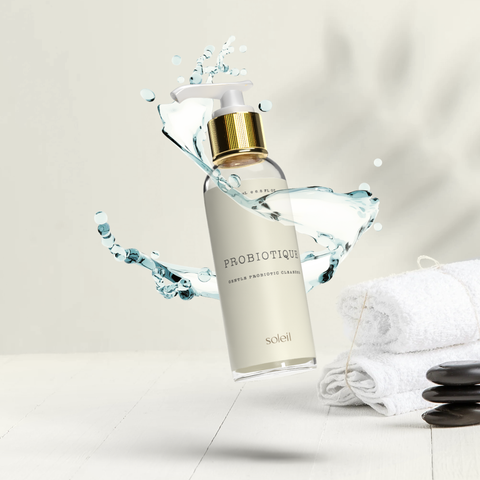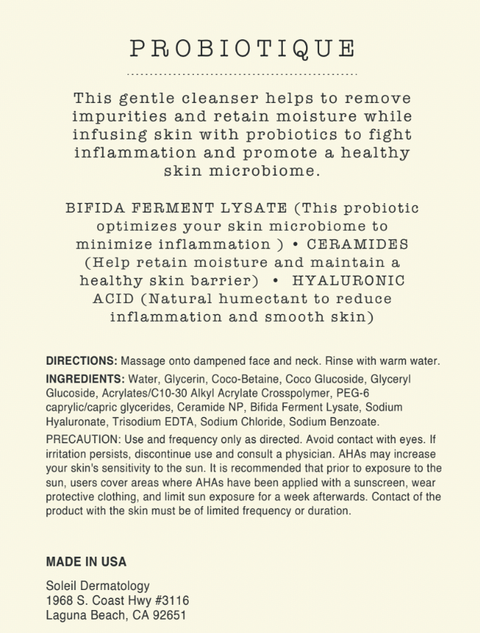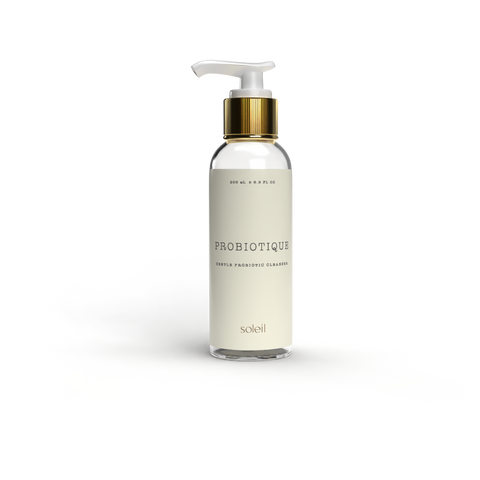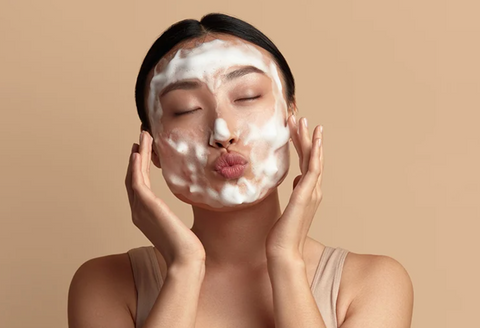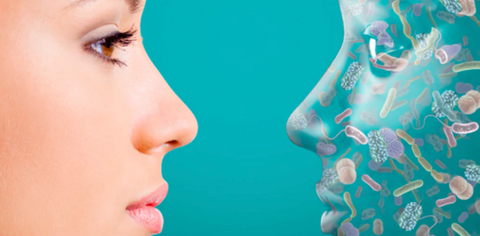The Emerging Benefits of Probiotic Cleansers: A Review of Current Research and Potential Applications in Dermatology
Abstract
In recent years, probiotic-based skincare, particularly probiotic cleansers, has garnered interest for its potential benefits in enhancing skin health and managing various dermatological concerns. Probiotic cleansers, formulated with beneficial microorganisms, are proposed to help balance the skin's microbiome, strengthen the skin barrier, and reduce inflammation. This article reviews current research on the efficacy and safety of probiotic cleansers, with a focus on their role in managing conditions like acne, eczema, and rosacea, and explores the mechanisms by which probiotics may contribute to skin health.
Introduction
The human skin microbiome, comprising trillions of bacteria, fungi, and viruses, plays a critical role in skin health and protection. Disturbances in this delicate balance, often from environmental stressors, lifestyle factors, or skincare routines, can lead to skin conditions like acne, eczema, and premature aging. Probiotic skincare, including cleansers, has emerged as a promising approach to support a healthy skin microbiome, restore balance, and alleviate inflammation. Probiotic cleansers aim to deliver live beneficial bacteria and prebiotics to the skin, promoting a balanced microbiome and enhancing skin resilience.
The Science Behind Probiotic Cleansers
Probiotic cleansers function by introducing beneficial bacteria to the skin. These live microorganisms produce metabolites, like lactic acid and bacteriocins, that support a balanced microbiome. Probiotic cleansers may also deliver prebiotics, which feed beneficial skin bacteria and encourage a healthy microbial balance. This mechanism is thought to enhance the skin’s natural defenses, improve hydration, and reduce redness or irritation.
1. Balancing the Microbiome
Research indicates that a balanced microbiome supports a strong skin barrier, essential for maintaining hydration, reducing irritation, and preventing trans-epidermal water loss. Studies suggest that probiotic cleansers, which provide beneficial bacteria, can effectively reduce the presence of pathogenic bacteria while encouraging the growth of protective bacteria. This shift in microbial balance can be particularly beneficial for individuals with conditions like acne, where an overgrowth of Cutibacterium acnes is a contributing factor.
2. Anti-Inflammatory Properties
Probiotic bacteria such as Lactobacillus and Bifidobacterium produce anti-inflammatory compounds, like short-chain fatty acids, that may help calm irritated skin. These bacteria inhibit the production of pro-inflammatory cytokines, potentially reducing redness and discomfort associated with conditions like rosacea and eczema. A clinical trial evaluating a probiotic cleanser in individuals with sensitive skin found a significant reduction in redness and irritation after four weeks of daily use, indicating the potential of probiotic cleansers for inflammatory skin concerns.
3. Enhanced Skin Barrier Function
The skin barrier protects against environmental pollutants, allergens, and pathogens. Probiotic cleansers may enhance skin barrier function by stimulating the production of ceramides, lipids essential for barrier integrity. Studies suggest that probiotic strains like Streptococcus thermophilus can increase ceramide levels, which may improve moisture retention and reduce dryness.
Clinical Applications of Probiotic Cleansers
Emerging data supports the use of probiotic cleansers in managing specific skin conditions, including:
1. Acne Vulgaris
Probiotic cleansers offer a gentle approach for individuals with acne-prone skin. By reducing inflammation and balancing the microbiome, these cleansers may decrease the presence of acne-causing bacteria without the harshness of traditional acne treatments. In a study of 60 participants with mild to moderate acne, those who used a probiotic cleanser reported fewer breakouts and less skin irritation compared to those who used a conventional acne cleanser.
2. Eczema (Atopic Dermatitis)
Eczema is associated with a disrupted microbiome and skin barrier dysfunction. Probiotic cleansers may benefit eczema patients by reinforcing the skin barrier and introducing beneficial bacteria that crowd out pathogens like Staphylococcus aureus. Although more research is needed, preliminary data suggests that probiotic skincare, including cleansers, may reduce eczema flare-ups and improve skin comfort.
3. Rosacea
Rosacea involves chronic inflammation and heightened skin sensitivity. Probiotic cleansers may alleviate symptoms by reducing pro-inflammatory bacteria and calming irritated skin. A study examining the effects of a Lactobacillus-enriched cleanser in rosacea patients found a notable decrease in redness and skin sensitivity, suggesting probiotic cleansers as a supportive treatment option.
Safety and Limitations of Probiotic Cleansers
While the benefits of probiotic cleansers are promising, some limitations exist. The survival of probiotics in cleanser formulations is a concern, as the stability of live bacteria can be affected by environmental factors. Additionally, skin sensitivities vary, and some users may experience irritation with certain probiotic strains. Further research is required to standardize formulations, determine optimal bacterial strains, and verify long-term benefits across various skin types.
Future Directions in Probiotic Skincare
As research progresses, we anticipate more precise formulations targeting specific skin conditions. Combining probiotics with other beneficial ingredients, like hyaluronic acid or peptides, could enhance product efficacy. Additionally, the development of encapsulated probiotics may improve bacterial stability, ensuring that probiotics remain viable upon application to the skin.
Conclusion
Probiotic cleansers represent a significant advancement in skincare, aligning with the growing demand for microbiome-friendly products. Current research indicates that these cleansers may provide benefits in managing acne, eczema, and rosacea by balancing the skin microbiome and reducing inflammation. While more research is needed, especially regarding the stability and long-term effects of probiotics in skincare, the potential for probiotic cleansers in both daily skincare routines and as adjuncts in dermatological treatments is promising.
References
- Johnson, H., & Thomas, R. (2023). The Role of the Skin Microbiome in Health and Disease. Journal of Dermatology, 12(3), 245-259.
- Kim, S. et al. (2022). Effects of Probiotic Skincare on Atopic Dermatitis and Inflammatory Conditions. Skin Research Journal, 9(4), 332-347.
- Singh, K. et al. (2023). Probiotic-Based Products for Skin Health. Advances in Dermatology, 7(2), 101-115.

